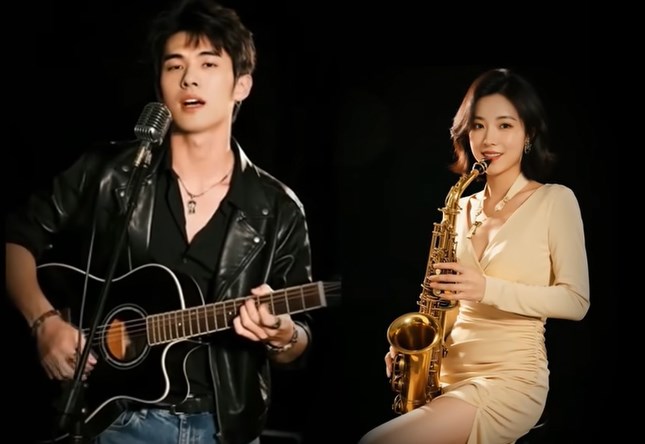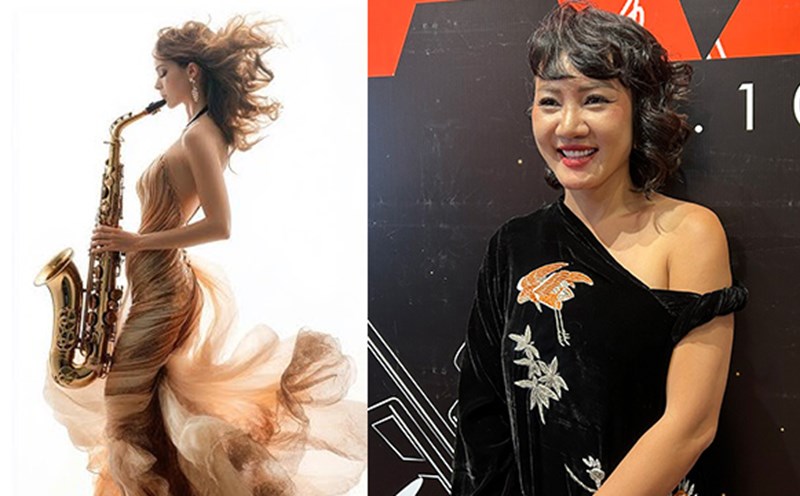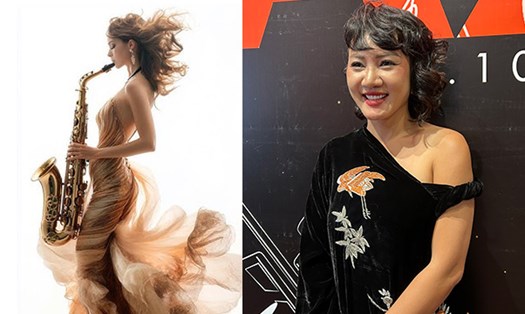AI attacks strongly in music

In just a few months, the trend of using AI (artificial intelligence) to compose, mix and sing cover songs has spread strongly in Vietnam. From amateur music lovers to young producers, everyone catches up very quickly. One of the typical channels is TRO - Music, currently with more than 139 thousand subscribers and 163 AI music videos with more than 45 million views.
The channel mainly posts lyrical, ballad, and rock songs composed or arranged by AI. Of which, Van ly sau earned more than 9.8 million views, while Da Lat con mua khong em reached 15 million views within 3 months.
Many other creators have also emerged such as Ken Quach Official with bolero, rumba album cover; or AI Love Music channel with new cover covers such as Diem Xua in rock - metal style.
Many other AI MVs also caused a fever such as Mua chua (4.4 million views), Xin con goi nhau (1.5 million views), or Once upon a while (1.2 million views).
The AI Music channel with nearly 13,000 followers also continuously recorded covers reaching hundreds of thousands of views. In mid-November, a series of new videos on this channel exploded, standing out such as "Roi lai gia" (1.5 million views) and "Mua thu" rock metal ballad (789 thousand views).
Previously in October, the song "Say a lifetime for you" (composed by Ken Quach - Huong My Bong, 10% AI support) reached more than 13 million views and created a series of AI cover versions. Many anonymous channels even post AI music that plays famous artists' voices, attracting hundreds of thousands of views per video.

AI makes fun but cannot replace art
The explosive power of AI music has caused many artists to express their opinions.
Designer Duc Hung frankly said: I have never listened to AI sing. I respect musicians, singers and emotions created from the heart.
Musician Dong Thien Duc believes that AI only creates "a sound bridge": "A song composed contains both love and emotions of humans and objects. In the harmony of melodies and lyrics filled with sadness and joy, there are steps through life with reverses, sunshine, rain, black, white... And we can't sit and edit another soulless song at our request, after editing it, listening to it is very deformed."
He admitted that AI is an inevitable trend, bringing interesting colors to the non-professional creative community, but emphasized: "Those who do art for real should not do it."
Musician Nguyen Van Chung also has a similar point of view. He considers AI products as just technology tools, not a work of art: AI processes logic from data, while art is creativity and vibration something AI does not have. Therefore, AI music cannot be compared to music written from the human heart.
Musician To Hieu mentioned another aspect, which is the pressure of a career in the booming AI era. Many of my colleagues are worried that AI is increasingly composing. Many good, catchy songs discouraged the musician. Some singers choose AI music because it is cheap and does not require copyright. But AI music lacks emotion, sometimes off-beat. That is the weakest point, the musician spoke up.
At the charcoal disc launch event on November 6, singer Tung Duong also shared frankly. Although he is always experimenting with technology, he believes that AI should not replace the creative nature of artists: Now AI can compose for the home, mix for the home, or even sing for the home. Many recent hot and viral songs are not made by real people. He revealed that there was a program that invited him to sing the song AI again but he refused.
The AI music trend is opening a new approach, helping non-professionals create more easily. The rapid growth of AI music YouTube channels proves that audiences are curious and interested in "virtual singing voices", "virtual mixages" but catching their ears.
The rapid popularity of AI music has made many people worried about the future of composition, singing, copyright, and the value of traditional art. However, from a positive perspective, AI can become a powerful support tool if used properly.











